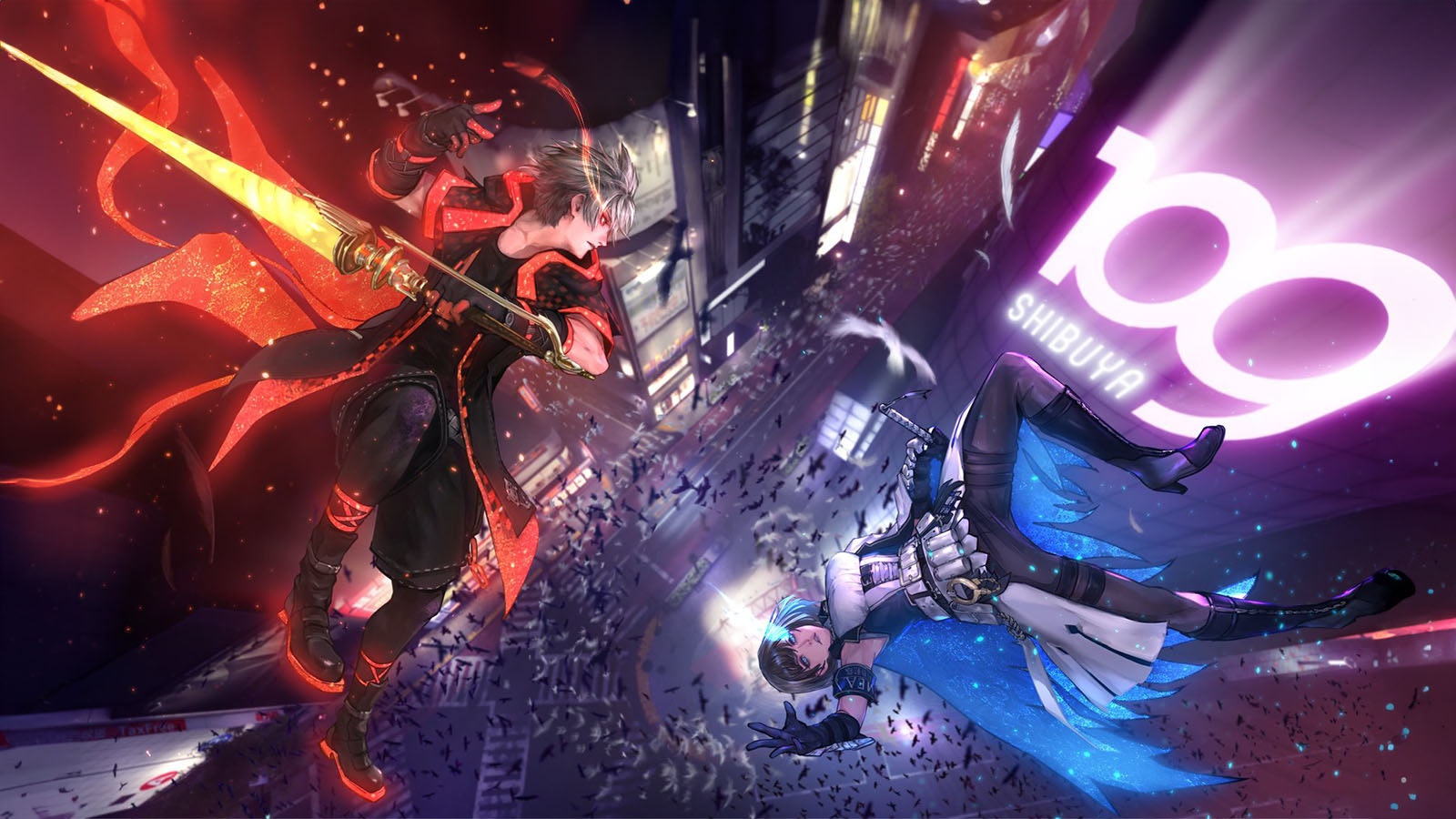
After six hours with Reynatis, I couldn’t shake the feeling that it reminded me of something — outside of the obvious Kingdom Hearts inspirations. Then it struck me; this is a PlayStation Vita game. The same kind of weird, experimental, charming, and undeniably janky RPGs that were rife on the little handheld. That’s both a good and a bad thing.
Reynatis is the latest game from FuRyu, the studio behind games like Trinity Trigger, Crymachina, and Monark. But Reynatis is unique from all those because of its clear inspirations from Square Enix’s stable of hits — namely Kingdom Hearts, Final Fantasy, and The World Ends With You.
A World of Wizards
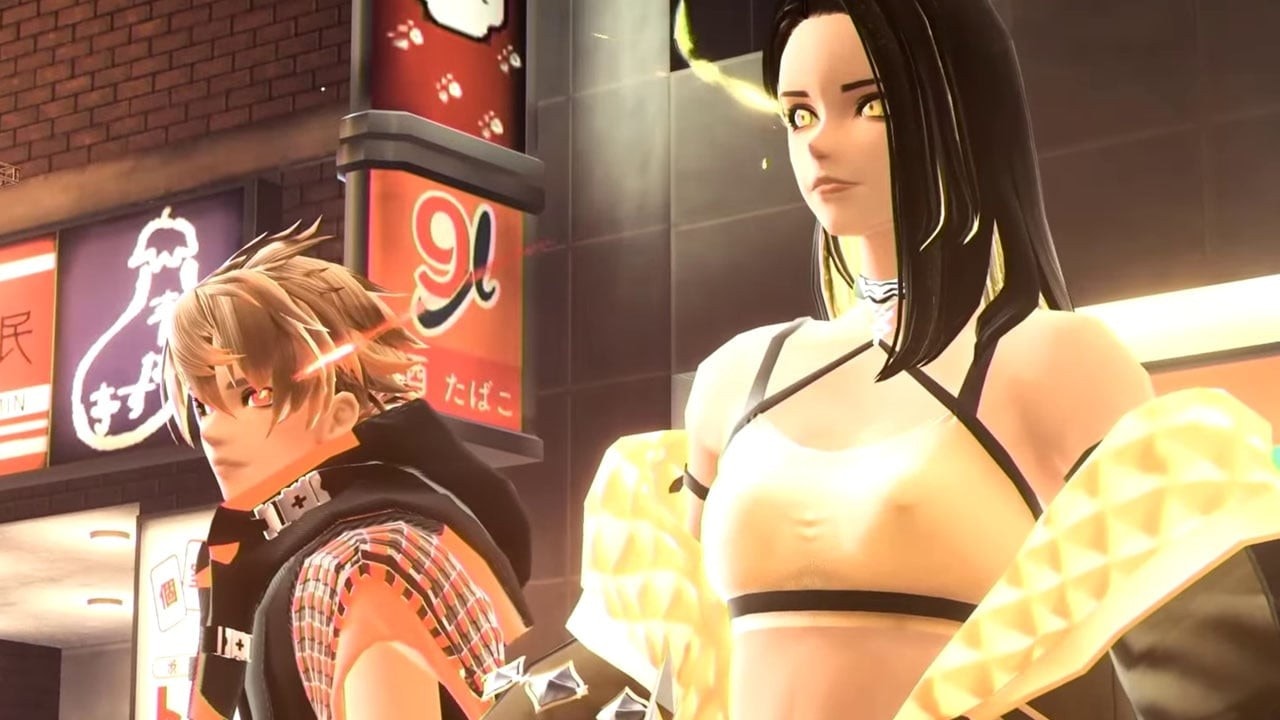
Reynatis takes place entirely in Shibuya, Tokyo — the famous ward in Japan that’s known as one of the busiest bastions of fashion and culture out there. The world of Reynatis is rich with lore and story setup, as wizards with magical powers coexist with normal humans. Because of the dangers wizards pose, authorities have issued the Criminal Magic Response Act, barring citizens from going out at night and regulating wizards using an agency called the M.E.A. (Magical Enforcement Agency). Against this backdrop, you play as two characters — an elite M.E.A. officer named Sari Nishijima and a rogue wizard named Marin Kirizumi.
Before diving into some of Reynatis’ bigger problems, it’s important to talk about the narrative as that’s clearly the game’s biggest strength, and where it’s most ambitious. The game makes fantastic use of its setting in Shibuya, adopting a tone that’s clearly meant to represent a younger generation — Gen Z-esque, if you will. Reynati’s script is brimming with modern slang, but it works here because of the metropolitan setting and focus on characters that are literally teenagers.
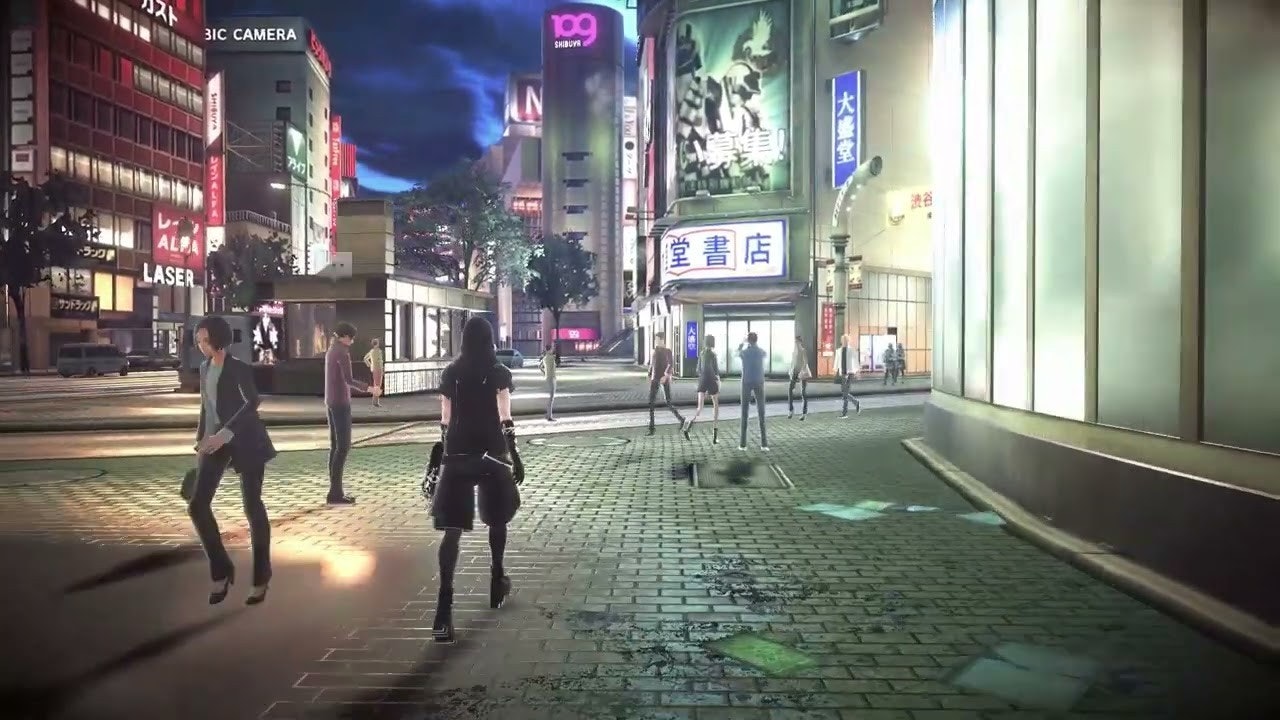
My absolute favorite thing about Reynatis is the optional text messages you can read between your party members. These are utterly delightful little bits of dialogue that really make each character feel grounded and realistic. In one text thread, everyone pokes fun at Marin’s overly moody personality and tendency to say “I knew that” whenever he feels embarrassed about not knowing something. Another has Sari showing her age by using outdated slang to plan a “girl’s night.” These moments help add so much rich personality to the characters, doing some real heavy lifting on character development that sometimes gets forgotten by the main story.
That focus on a younger generation permeates the game’s larger themes — about suppressing your true self from the world, and finding out how to liberate yourself from feeling the need to do that. There are large questions at the core of Reynatis’ story, which has some compelling things to say, but it’s let down by the game’s biggest problem across the board: execution.
The Good, the Bad, and the Ugly
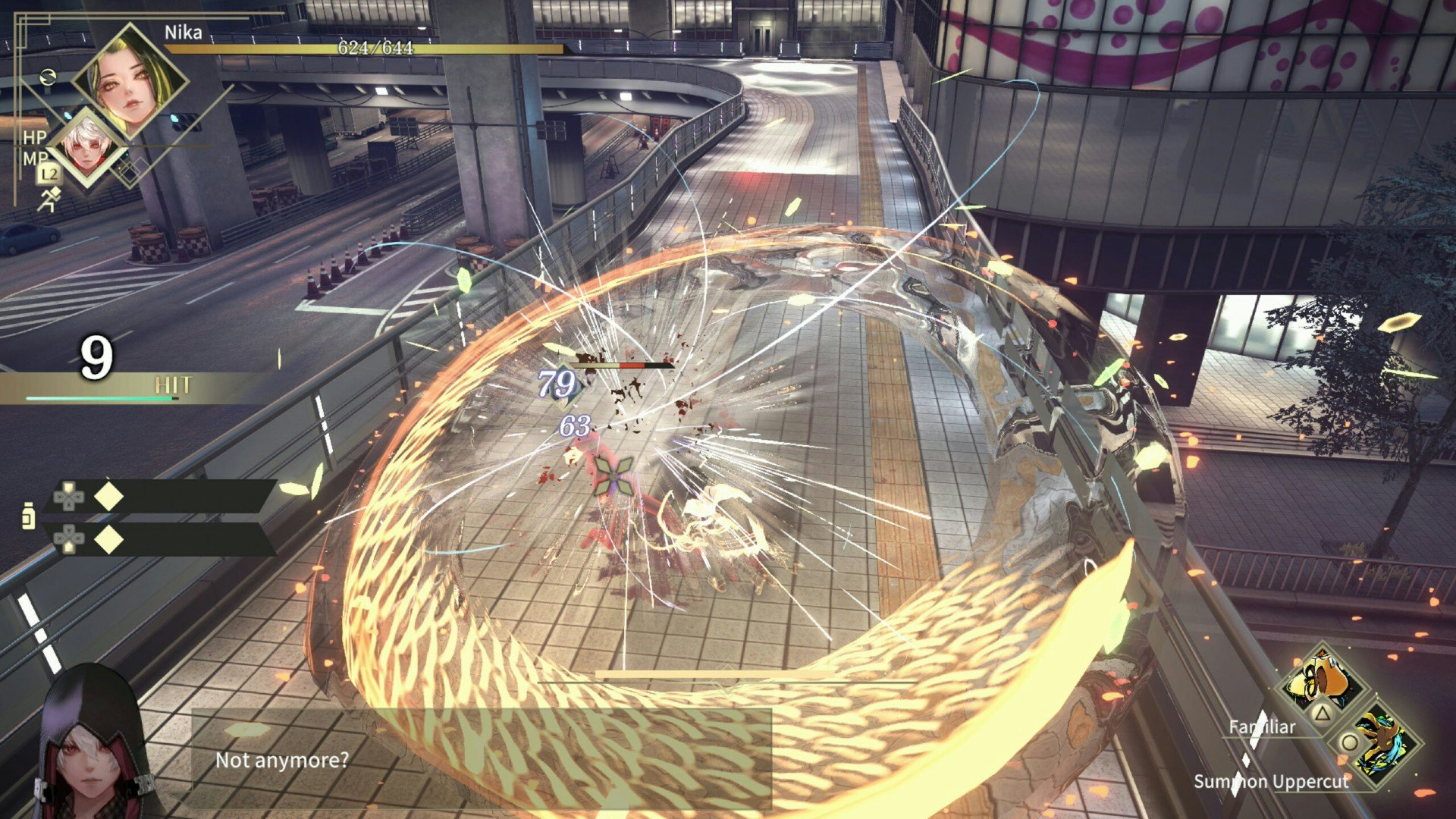
Reynatis is a game filled with compelling ideas that are so often let down by the way they’re implemented. It’s a case of where there’s just not enough of the good stuff — it’s spread far too thin, like a teaspoon of sugar when the recipe calls for a tablespoon.
There are essentially two halves to playing Reynatis — wandering around Shibuya to continue the story, and battling a host of different enemies. As you wander you can find Wizard Art (called “Wizart”) that gives you extra combat abilities or skills to boost your character’s stats. Reynatis is an action RPG that honestly feels like “Kingdom Hearts-lite” in some way. You have six different party members who each have different attacks and skills — but you can swap in different skills by finding their Wizart. You can only have one party member active at any time, out of three you take into combat, but swapping to another lets the previous one stay on the field for a couple of attacks.
Past the party setup, combat revolves around a core idea that has you swapping between two modes at will — Liberated and Suppressed. In Liberated Mode you can use all of your attacks and skills, but constantly use up your MP gauge. When the MP gauge is depleted, you go into Suppressed Mode, completely dampening your powers — meaning you can’t attack or use skills at all. However, this enables a new dodge mechanic that lets you fill a gauge the second an enemy attacks for a big burst of MP and some damage.
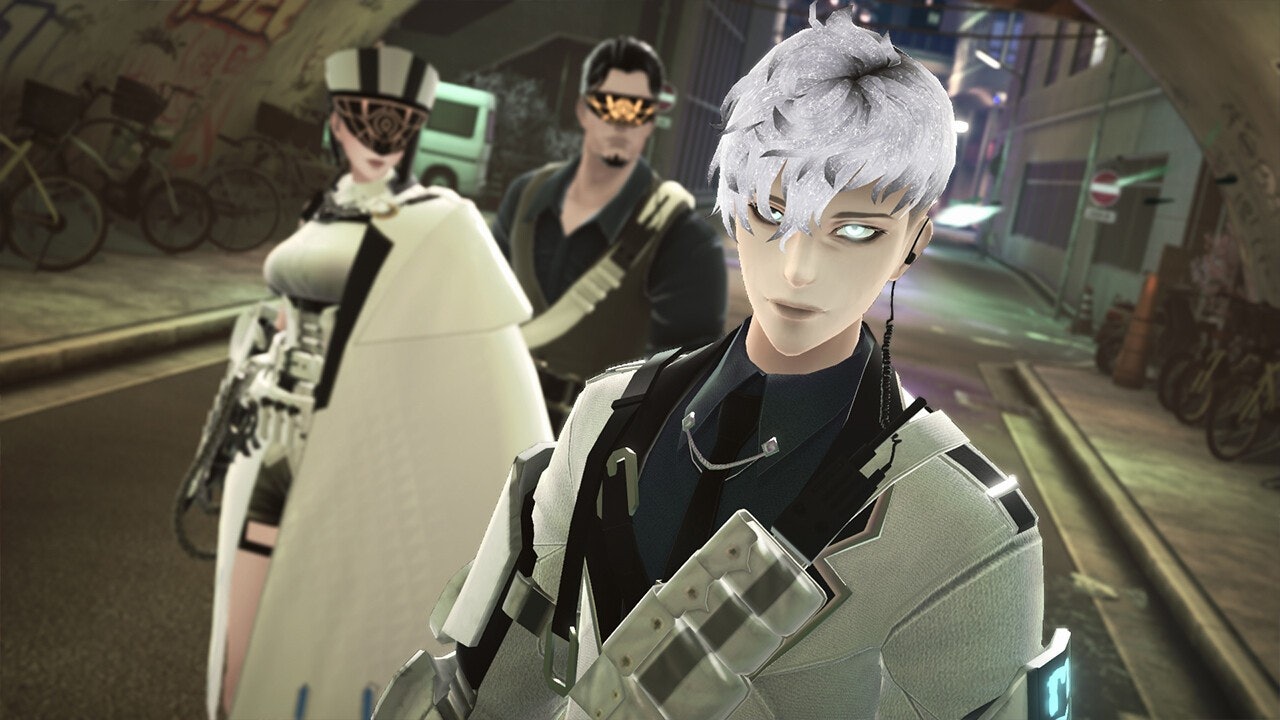
With all this in mind, combat becomes a game of swapping between your various party members and modes, adjusting to enemies on the fly, and trying to juggle the MP gauges of every party member. It’s a system that requires quick responses, and initially feels like a lot of fun — but it simply doesn’t grow across the experience. While combat controls well, overall, there’s a bit of floatiness and jankiness to the controls that are often found in a lot of FuRyu games, it simply doesn’t feel as solid as other action RPGs. That’s largely not a problem until you get further into the game.
The more you progress in Reynatis, the more kinds of enemies the game introduces, but the actual abilities you have at your command don’t largely change outside of just getting stronger. Late-game boss battles become especially frustrating affairs that require a ton of dodging, with attacks and particles that absolutely fill the screen and battle arena. What starts as an unpolished but fun combat system devolves into a fair amount of frustration a dozen hours in, especially as the game continues to throw battle after battle at you.
Untapped Potential

That lack of variety is Reynatis’ downfall from the big picture, not just the combat. There are dozens of sidequests to complete, but they all boil down to either fighting a few enemies or going to a point and talking to someone. Some add some interesting story details, but not all. The glistening streets of Shibuya are initially engrossing, and the way the city has been realistically recreated is impressive, but those streets grow a little stale 15 hours in. You get to explore an alternate world called “Another,” but again you’re treading the same nondescript forest repeatedly. The same can be said for portions of the story — the big picture themes are interesting, but the middle section spends too long meandering without meaningful development, before coming back together in the last third.
Other little problems pepper the game here and there — the presentation can be a mixed bag as the art style and direction are genuinely great, but ugly characters and animations feel undoubtedly dated. The soundtrack has some great tracks, but again there’s simply not enough variety as you hear the same tracks over and over. Even the game’s collaboration with The World Ends With You is a one-off mission that lacks substance.
Reynatis is obviously made by a small team with a lot of passion for the world and concept, but the game’s disparate ideas simply don’t come together into a truly cohesive package. There’s greatness hidden in Reynatis and even bits that I truly loved, like the text conversations, but it all comes with some caveats. I don’t regret the time I spent with Reynatis, and think there could be the spark of something truly interesting if it gets a sequel. But for now, it feels a bit like RPG junk food, satisfying in some ways, but leaving you wanting more.
6/10
Reynatis launches on September 27 for PS4, PS5, Nintendo Switch, and PC. Inverse reviewed the PS5 version.
INVERSE VIDEO GAME REVIEW ETHOS: Every Inverse video game review answers two questions: Is this game worth your time? Are you getting what you pay for? We have no tolerance for endless fetch quests, clunky mechanics, or bugs that dilute the experience. We care deeply about a game’s design, world-building, character arcs, and storytelling come together. Inverse will never punch down, but we aren’t afraid to punch up. We love magic and science-fiction in equal measure, and as much as we love experiencing rich stories and worlds through games, we won’t ignore the real-world context in which those games are made.







